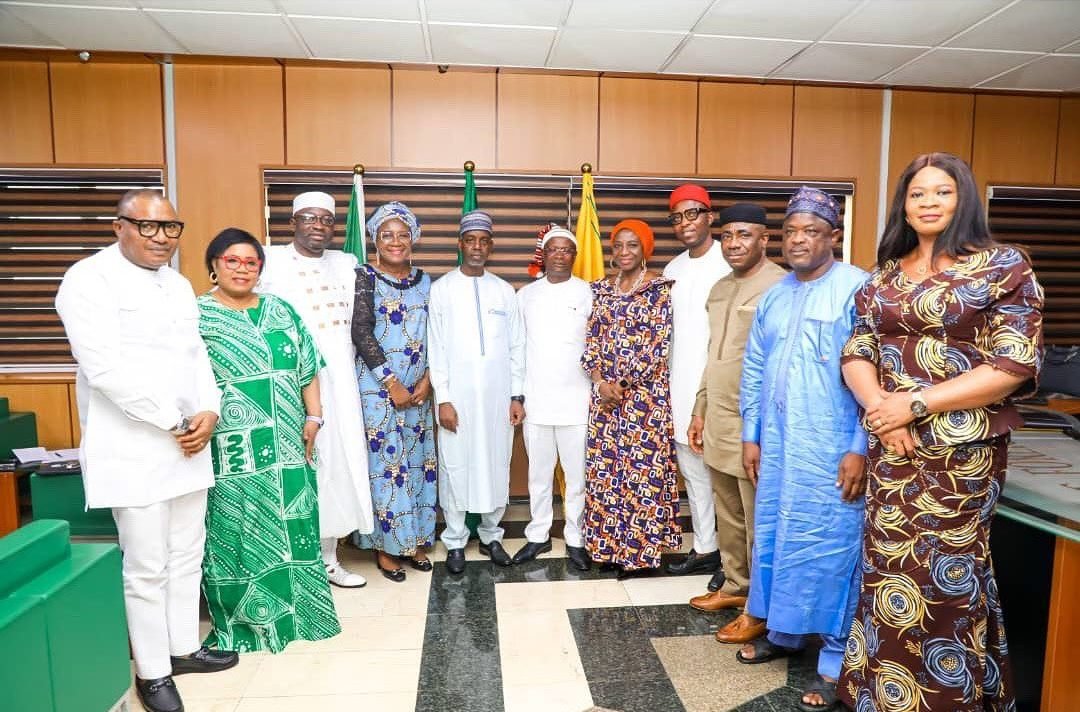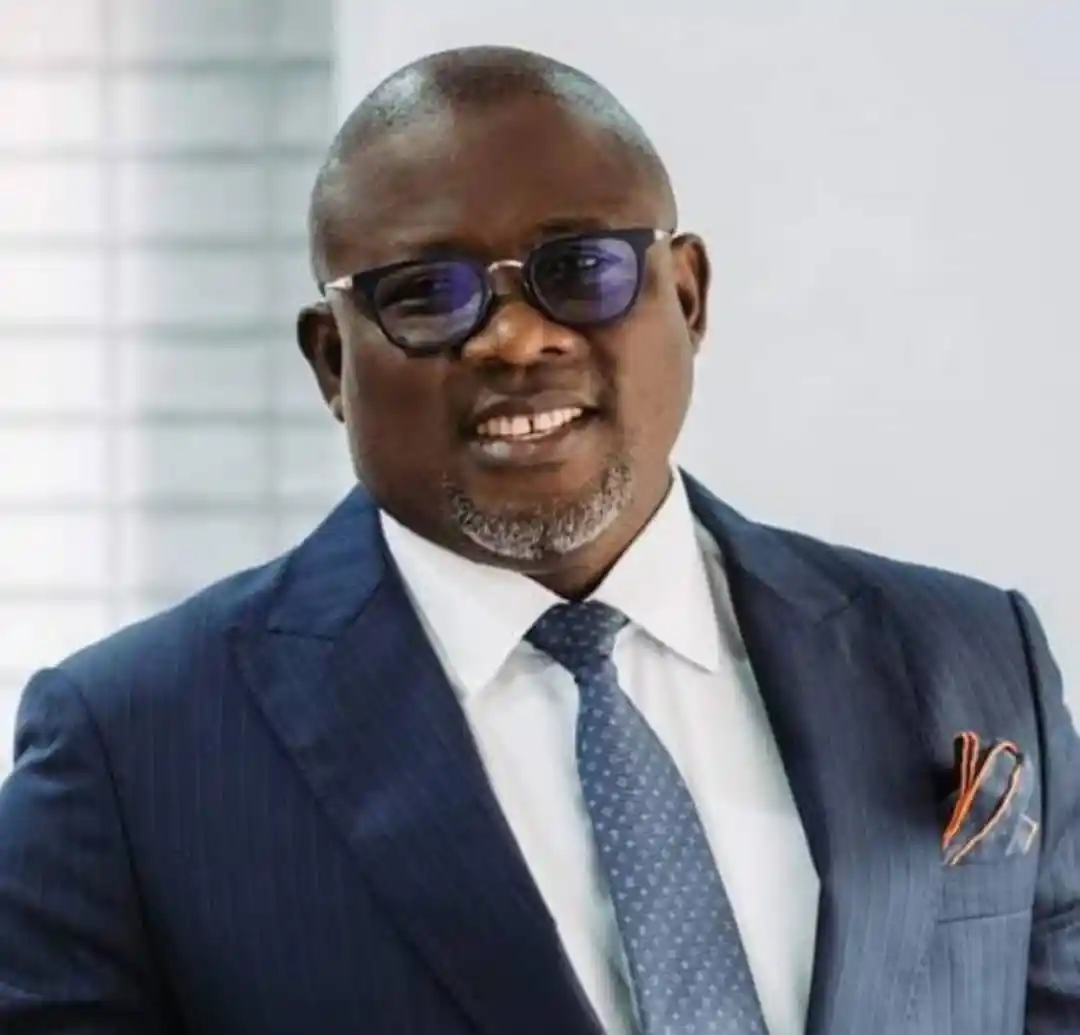Who Was Nigeria’s First House of Representatives Speaker?

The House of Representatives is a vital institution in Nigeria’s democratic system. It serves as the lower chamber of the National Assembly and represents the interests of the Nigerian people.
Since its establishment, several individuals have held the esteemed position of Speaker of the House of Representatives.
Who Was The First Speaker of the House of Representatives in Nigeria?
In this article, we will explore the history and significance of the first Speaker of the House of Representatives in Nigeria.
The Inaugural Holder: Sir Frederic Metcalfe
The first Speaker of the House of Representatives in Nigeria was Sir Frederic Metcalfe.
However, it is important to note that Sir Frederic Metcalfe served as the Speaker during the colonial era.
He was appointed as the Speaker of the Legislative Council in 1946 when Nigeria was still under British colonial rule.
The Transition to Indigenous Leadership
Following Nigeria’s independence in 1960, the country witnessed a significant shift in its political landscape.
With the establishment of a democratic system, indigenous leaders began to assume key positions of power. Jaja Wachukwu, a prominent Nigerian politician, became the first indigenous Speaker of the House of Representatives in Nigeria.
Jaja Wachukwu: The First Indigenous Speaker
Jaja Wachukwu was a highly respected figure in Nigerian politics. He played a crucial role in the struggle for independence and served as Nigeria’s first Foreign Minister.
In addition to these accomplishments, Wachukwu also held the prestigious position of Speaker of the House of Representatives.
Chaha Biam: Speaker in the Short-Lived Second Tenure
Chaha Biam, hailing from the Ukum Local Government Area of Benue State, played a significant role as the Speaker of the House of Representatives during the short-lived second tenure of Alhaji Shehu Shagari.
He was elected to the House of Representatives on the platform of the National Party of Nigeria (NPN) in the 1983 general elections.
Chaha Biam’s tenure as Speaker lasted from October 1, 1983, to December 31, 1983.
Although his time in office was brief, he made valuable contributions to the legislative process and represented the interests of the Nigerian people.
Dimeji Bankole: The Youngest Speaker
Dimeji Bankole holds the distinction of being the youngest Speaker in the history of the House of Representatives of Nigeria.
He was elected to the position at the age of 37, bringing a youthful perspective to the leadership of the House.
Born on November 14, 1969, Dimeji Bankole served as the Speaker from 2007 to 2011.
During his tenure, he focused on issues such as economic development, education, and healthcare.
The Role of the Speaker of the House of Representatives
The Speaker of the House of Representatives of Nigeria plays a critical role in the country’s governance. The Speaker is responsible for presiding over the proceedings of the House, maintaining order, and ensuring that all members have the opportunity to express their views.
Additionally, the Speaker represents the House of Representatives in its interactions with other branches of government, both domestically and internationally.
The Speaker is often seen as the voice of the House and acts as a bridge between the legislative and executive branches.
Furthermore, the Speaker has the power to influence the legislative agenda, determine the order in which bills are discussed, and assign committee memberships. The Speaker’s leadership and impartiality are essential in maintaining the integrity of the legislative process.
The Importance of the Speaker in Nigerian Democracy
The Speaker of the House of Representatives plays a crucial role in Nigerian democracy.
As the highest-ranking official in the House, the Speaker represents the interests of the Nigerian people and ensures that their voices are heard.
The Speaker’s role in promoting transparency, accountability, and good governance cannot be understated.
By upholding the principles of democracy and fostering a culture of dialogue and collaboration, the Speaker contributes to the overall development and progress of Nigeria.
Through their leadership and commitment to the welfare of the Nigerian people, the Speakers of the House of Representatives have played a significant role in shaping the country’s political landscape and advancing its democratic ideals.
Term Length and Renewal
The Speaker of the House of Representatives in Nigeria serves a term of four years.
This term is renewable, allowing the Speaker to potentially hold the position for multiple terms.
The renewal of the Speaker’s term depends on various factors, including the support and confidence of their fellow legislators.
Constitutional Basis
The position of the Speaker of the House of Representatives in Nigeria is established and governed by the Constitution of Nigeria.
This constitutional document outlines the powers, responsibilities, and limitations of the Speaker, ensuring that they operate within the framework of the law.
List of Speakers of the House of Representatives in Nigeria
Below is a comprehensive list of speakers from the Federation and First Republic to the present Fourth Republic.
Federation and First Republic
In the early years of Nigeria’s independence, the speakers in the Federation and First Republic were:
- Sir Frederic Metcalfe (1955 – 1959): Sir Metcalfe served as the first speaker of the House of Representatives in Nigeria. He held this position from January 1955 to January 1959.
- Jaja Wachuku (1959 – 1960): Wachuku took office as speaker in January 1959 and served until October 1960, representing the National Council of Nigeria and the Cameroons.
- Ibrahim Jalo Waziri (1960 – 1966): Waziri, a member of the Northern People’s Congress, assumed the role of speaker from October 1960 to January 1966.
Second Republic
The Second Republic witnessed the following speakers:
- Edwin Ume-Ezeoke (1979 – 1983): Ume-Ezeoke, a member of the National Party of Nigeria, served as speaker from October 1979 to October 1983.
- Benjamin Chaha (1983): Chaha briefly held the position of speaker from October to December 1983, representing the National Party of Nigeria.
Third Republic
During the Third Republic, the speaker was:
- Agunwa Anaekwe (1992 – 1993): Anaekwe, a member of the Social Democratic Party, assumed office in December 1992 and served until November 1993.
Fourth Republic
In the current Fourth Republic, the House of Representatives has seen several speakers:
- Salisu Buhari (1999): Buhari, a member of the People’s Democratic Party, served as speaker from June to July 1999.
- Ghali Umar Na’Abba (1999 – 2003): Na’Abba held the position of speaker from July 1999 to June 2003, representing the People’s Democratic Party.
- Aminu Bello Masari (2003 – 2007): Masari, also a member of the People’s Democratic Party, served as speaker from June 2003 to June 2007.
- Patricia Etteh (2007): Etteh briefly served as speaker from June to October 2007, representing the People’s Democratic Party.
- Dimeji Bankole (2007 – 2011): Bankole, a member of the People’s Democratic Party, assumed office in November 2007 and served until June 2011.
- Aminu Tambuwal (2011 – 2015): Tambuwal, also a member of the People’s Democratic Party, held the position of speaker from June 2011 to May 2015.
- Yakubu Dogara (2015 – 2019): Dogara, representing the All Progressives Congress, served as speaker from June 2015 to June 2019.
- Femi Gbajabiamila (2019 – 2023): Gbajabiamila, a member of the All Progressives Congress, assumed office in June 2019 and is the current speaker.
- Tajudeen Abbas (2023 – present): Abbas, representing the All Progressives Congress, is the incumbent speaker since June 2023.
Conclusion
The first Speaker of the House of Representatives in Nigeria, Sir Frederic Metcalfe, and subsequent indigenous Speaker Jaja Wachukwu, have played integral roles in shaping Nigeria’s democratic system.
Their contributions have paved the way for future leaders to uphold the principles of democracy and serve the Nigerian people.
As the House of Representatives continues to evolve, the position of the Speaker remains a vital component of Nigeria’s political landscape.
Article updated 4 months ago ago. Content is written and modified by multiple authors.









